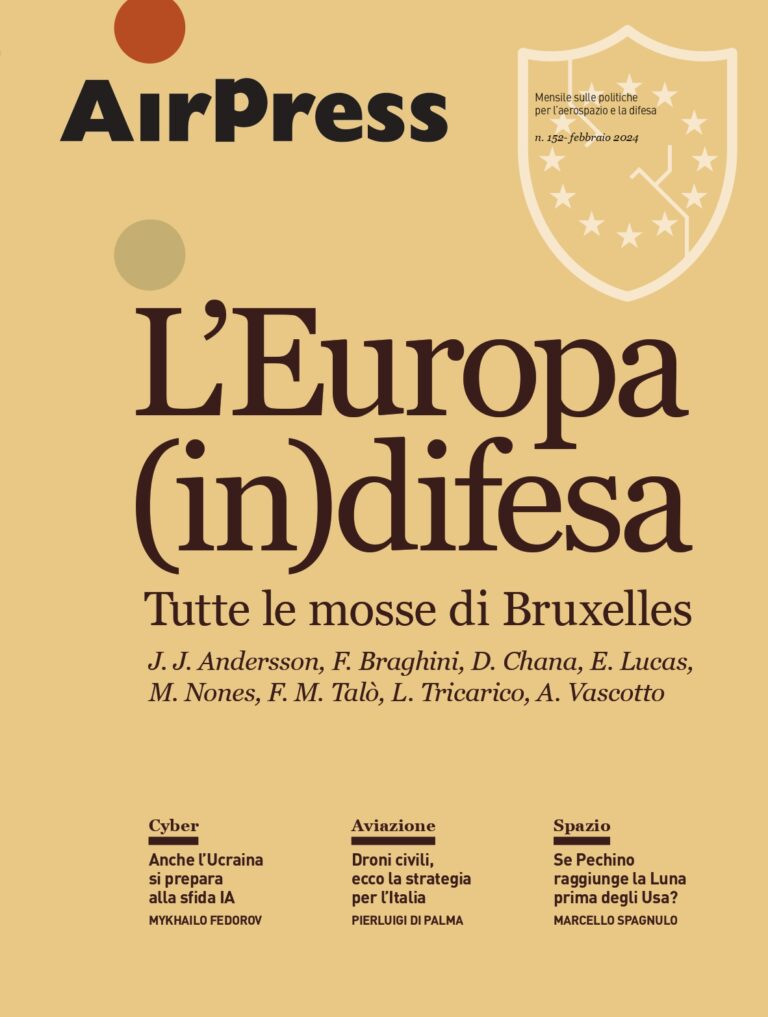In this exclusive interview with Formiche.net Yemeni Foreign minister bin Mubarak photographs his country’s situation, appealing to the international community and the EU to assist Yemen in halting Houthi aggressions
A country that has been at war for six years, clashes where Houthi separatist efforts overlap with foreign interests (such as that between the Shiite Islamic Republic of Iran and the Sunni monarchies of the Gulf), a dramatic humanitarian condition repeatedly underscored by the UN. Yemen is in a dark phase, which Formiche.net explores by exclusively speaking with Foreign Minister Ahmad Awad bin Mubarak.
What do you ask of the international community?
To help resolve the Yemeni crisis, the international community must exert maximum pressure on the Houthi militia to stop using violence to achieve political gains and sit at the negotiating table. This also requires real pressure on the Iranian regime to stop its support for the Houthi militias and abide by UN Security Council Resolution 2216, which prohibits supplying weapons to rebels.
As for the European Union, we call on it to establish a true partnership with the Yemeni government and support it by all possible means to achieve comprehensive and lasting peace in Yemen.
Is there a role for Italy?
I would also like to draw the attention of the friendly Italian government to an important issue among the many issues in the Yemeni dossier, namely that of the Safer oil tanker. It poses a great environmental threat, not only for the Red Sea, which shares a single marine environment with the Mediterranean, but also for nearby seas.
This ship holds more than one million barrels of crude oil and has a decrepit tank. The loss or explosion of the tanker could occur at any time and the Houthi militias refuse to allow a UN technical team to access the tanker, assess its condition and make initial repairs, as requested by the Security Council in its special session on July 15, 2020.
We hope to see greater involvement by the Italian government on this dossier, and action at the EU level to put pressure on the Houthi militias in order to tackle this problem and defuse a humanitarian, environmental and economic catastrophe for Yemen, the entire region and the European countries that overlook the Mediterranean.
Saudi Arabia has launched a dialogue initiative with the Houthis. How is that going?
The Yemeni government welcomed the four-point Saudi initiative for its determination to end the coup and the war and to alleviate the humanitarian crisis engulfing the Yemeni people. We welcomed the efforts made by the UN Secretary General’s Special Envoy, Martin Griffiths, and the United States Special Envoy, Tim Lenderking.
On the other hand, there are contradictory responses from the Houthi militia leaders who reject the Saudi initiative and continue to intensify the military escalation in the Marib governorate, bombing refugee camps and residential neighborhoods with Iranian missiles and drones. They continue to target civilian objectives in the Kingdom of Saudi Arabia, which confirms that these militias do not decide on their own but are rather an Iranian tool for the implementation of Iran’s expansion project into Yemen and the wider region.
How do you assess these Houthi bombings on Marib, Taiz and other areas, as well as the attacks on Saudi areas with drones and missiles in recent weeks?
The doctrine of violence, war and aggression is deeply rooted in the Houthi movement. The Houthi war on Yemenis has been going on for seventeen years and this movement is expected to keep upholding violence and aggression and target residential neighborhoods, refugee camps and civilian targets.
Furthermore, the Houthi movement is already preparing a future cycle of violence by changing school education programs, spreading violent ideas and raising children to hate others, as the Houthi militia organizes children summer camps to inculcate their own totalitarian and racist ideas and spread hate speech.
This is a movement whose danger is not limited to Yemen and the region; the totalitarian and racist ideas it carries makes it a threat to global security and peace.
Minister, you submitted a report to the United Nations Security Council accusing the Houthis of collaborating with the Islamic State (ISIS) and Al-Qaeda. What was the answer?
The relationship that we have discovered between the Houthis and other terrorist organizations in Yemen is an extension of the same relationship between the Iranian regime and those organizations at the regional level. That report is the first of its kind to be delivered to the Security Council by the Yemeni government. It won’t necessarily elicit a response, as the Security Council represents the will of its constituent countries.
However, what matters now is continuing to disseminate the contents of that report and the dangers they pose to Yemen, the region, international peace and security,and the nature of the Houthi group, which uses other terrorist formations to achieve its political goals. We hope that society will realize the danger that this terrorist group represents.
What is this cooperation between the Houthis and other terrorist organizations based upon?
There is a relationship of cooperation and collusion between the Houthis and other terrorist organizations because they all see the Yemeni government as a common enemy. As soon as the Houthi militias took control of state institutions, including intelligence services (Political Security and National Security), they seized all the information from them and used it to build a close relationship with other armed groups, such as al-Qaeda and ISIS.
Cooperation between the militias and these terrorist organizations include security and intelligence collaboration. Elements from these organizations have been used to carry out terrorist operations in government areas. A safe haven has been provided to many members of these terrorist organizations. The Houthis coordinated combat operations against legitimate government forces and empowered these groups by building and strengthening their strongholds and issuing false documents to their members.
The government previously accused the United Nations of inaction, and there are those who also accused it of supporting the Houthis. How do you evaluate these claims?
We of the Yemeni government appreciate the role that the UN plays in Yemen, especially its humanitarian role, but certainly the UN’s actions have been accompanied by many shortcomings and real problems. The issues are mainly linked to the UN headquarters being in Sana’a, a city that is controlled by Houthi militias.
These militias have taken entire offices and employees as hostages, imposing their policies on them. Whoever rejects their directives is expelled. They also required humanitarian organizations to provide funds and sums of money to the so-called “Supreme Council for the Management and Coordination of Humanitarian Affairs”.
Thus, there are major instances of corruption which are being investigated by the UN. We have a vivid example in what happened with the UNMHA mission in Hodeidah, when the Houthi militias disrupted its work by holding the mission hostage, rendering it unable to move or perform any tasks.
On the other hand, these organizations weren’t able to perform their duties in the governorate of Marib, which hosts over 2 million displaced people who have fled the brutality and violence of the militias. The impact of such organizations in the governorate is still very modest despite the large and urgent needs due to Sana’a militias controlling the aid which is granted to the governorate of Marib.
Furthermore, these organizations have not condemned the repeated militia attacks in the refugee camps in Marib, and the matter is also related to their media centers being in Sana’a, which in turn are run by local employees imposed by the Houthis.
We have repeatedly called for an end to the centralization process and the establishment of humanitarian centers – independent from Sana’a – in Marib and other governorates far from the grips of the Houthi militia. We also called on organizations to relocate their headquarters to government areas to serve all Yemenis without the influence and control of the Houthi militia. If this isn’t done, the militias will continue to plunder aid and the Yemenis’ suffering will continue.
So what is the situation on the ground of the ongoing conflict?
In the past two years, government forces have not attacked any Houthi military targets in hopes of achieving peace. The position of the National Army is defensive and limited to repelling the attacks of the Houthi rebels. They, on the other hand, are still engaged in their attack on the governorate of Marib, despite it being a futile attack that does not translate into concrete results due to their complete inability to achieve progress on the field. This is why they resort to targeting civilians and refugee camps with ballistic missiles and the militia’s stance is still stubbornly bent on hindering peace efforts.







